“Life is a series of choices.”
This can be both an exciting thing to hear, as well as a little daunting. It’s great that we have so many options, but it also means that our choices may lead us down the wrong path, or take us somewhere we’ll regret. This is even tougher if there are circumstances that are beyond your control that are ‘forcing’ us to make different options. (I discussed some of the challenges involved in moving off the CA(SA) route in this article if you’re interested).
Career and study choices are serious decisions that can have an incredibly big impact on your life. Most students take these decisions very seriously, but this means that there’s often a lot of fear involved. “Will this be the right decision for me?”; “Will it bring me the success I desire?”; “Will I regret doing this rather than something else?”; “Will this guarantee me the job of my dreams… even if I don’t quite know what those dreams are yet?”… these are only a few of the questions that run through students minds as they look at their lives and choices.
I want to talk a little bit about your choices and challenges, and perhaps some of the thoughts may help you make sense of some of the challenges you may be facing.
Did I have it all figured out?
I want to start with my personal experience, because it sometimes helps to know other people’s journeys and decisions when you’re looking at your own life. We can learn from other people’s stories (even if it’s just to promise ourselves that we will NEVER land up like them!)
I DID indeed have it all figured out… between the ages of 7 and 17. I knew pretty much what I was going to do, and how I was going to do it… and then the real world smacked me and everything changed. Nothing worked out the way I expected, and I was terrified that all my hopes and dreams were wasted. (You can read about some of my journey here). For someone who was SO SURE… it was very traumatic for me. Having to study my degree and CTA at UNISA instead of the universities I’d dreamed of was probably one of the first huge ‘smacks’! It was NOT easy to try figure out how to get back on track when everything kept falling apart. I felt alone, no one could really help, and I had no idea where it was all going to end. I didn’t give up on my dream of qualifying… but it looked NOTHING like I expected it too. I kept having to figure out a new ‘plan’ because they kept falling through.
As I studied, I became VERY SURE (again) about what I was going to do after I qualified… I was going to do my articles at a Big 4 firm (I even knew which one!) and then I was going to be an audit partner. (I guess we can all agree that none of those things happened!). When I didn’t hear from the firm I applied at, it threw me again. I’d worked so hard, come so far… and everything changed again. I had to start making decisions all over again. Where to do articles, now that my ‘plans’ had fallen through again. As I worked through articles, the idea of becoming an audit partner started dissolving. I started lecturing during my articles… and my plans changed again! I’d have laughed at anyone who told me I’d make a career of lecturing… and yet… there I was… Lecturing.
Are you noticing a trend here?!
I had conversations with quite a few people through the years, around what I was going to do with ‘the rest of my life’. My answers started becoming less certain, and more along the lines of “I think…” or “I might…”. What I did stick to though, was that I would “NEVER work for myself”. I didn’t have the risk appetite for that, and would never want to have to worry about finding my own salary. Being employed by someone else was far safer, and that was something I was very certain about.
Step forward a few years… and I found myself leaving permanent employment to start my ‘own business’ and ‘work for myself’. That was three years ago. So much for having it “all figured out”! Nothing I do now resembles anything I was ‘certain’ of along the way.
Just for the record… I’m really glad that I am where I am now, and that ‘certainty’ has LONG since disappeared! I’m still not entirely comfortable with the lack of certainty, but it’s a lot less scary than it used to be.
What if you don’t know what you want to do for the rest of your life?
I think this question is quite dated. It’s quite an ‘old-fashioned’ idea that you will have a clear idea of exactly what you want to do for the rest of your life. If we look at our parents, and the previous generation of employees, there was a very different work and career dynamic.
The following statements are things that I heard growing up, from my parents, teachers, and others who were giving advice on the future”
- “If you change jobs too often, future employers will think you don’t have commitment and won’t want to employ you”
- “You’ll be successful if you stay with the same company, show loyalty, work hard and get promoted”
- “If you don’t ‘find’ yourself when you’re young, you’ll never recover and you’ll always regret it”
- “You have until you’re in your mid-twenties to figure your studies and career out. After that it will be too late”
These used to be ‘truths’ that we were taught, and some of them are still driving our choices or mindsets. Times have changed, careers have changed, and yet, we still measure ourselves by outdated ideas.
I’m not saying that there’s no value to those statements, and that there isn’t worth in them… but it’s pretty clear that the world doesn’t really work that way anymore. If someone tells you they’ve been at the same company for the last 15 years… what’s the first thought that comes to you? “Wow… you must be successful!” OR “Wow… you’re going nowhere!”. Twenty years ago, you’d be applauded and praised… these days, people don’t see that as success, they’re more likely to think you’ve stagnated, and are hiding away in there because you’re too scared of what’s out there. (Statistically, young professionals move jobs every two years or so. My dad would have been HORRIFIED!!!)
If you’re not going to stay with the same company until you retire… how will you know what jobs you’ll get when you move around? How will you know what you’ll be doing in the next 5 years, 10 years, 15 years?
So… if the idea that you should know exactly what you should be doing forever is a little outdated… why are you still so worried if you don’t know the answer to that yet?!
What if your perfect job doesn’t exist yet?
I googled the words “Jobs that didn’t exist…”… see for yourself what comes up. There are options for jobs that didn’t exist 20 years ago; 10 years ago… even FIVE years ago! Look through them. Look how many there are.
When I was studying and wishing I could get some explanations for some of the stuff I was struggling with… It never occurred to me that there would one day be ‘online classrooms’, where I could watch videos on my stuff and have access to lecturers, no matter where they were. (Sure, there were teachers on SABC… Remember William Smith… the maths genius?!), but that’s not the same as the online stuff we do now. I’m working with stuff that didn’t really exist back then… how could I have known that?!
So… when you’re worrying that you don’t know what you’re supposed to do… remember that there are a lot of people working in careers, industries, jobs that didn’t exist before. One of those might find it’s way to you when you least expect it!
What do you do if things change?
We are not fond of change… but we can be sure that things will change. Very few people’s plans work out the way they expected it to for their whole lives. Get used to change… it will be a constant part of your life! (Very comforting, I know!)
So what if things change?! What counts is how you deal with it. How you decide to address it… embrace it, hide from it, ignore it, complain about it… your choice.
The beauty of the world you live in these days is that there is SO much information out there! If things change, research your options! ASK questions. Talk to people!
I have students that contact me ALL the time, asking what I think they should do, because their lives have changed. How can I possibly know the right answer for you? I would NEVER claim to know the answer to such an important question in your life. What I generally do, is ask what they’ve looked into. What industries have they researched? What qualifications have they looked into? What jobs can they find for qualifications they’re looking at? Have they asked in-depth questions of other students, or people who have taken a different path (I generally see on Facebook that students ask ‘shallow’ questions of others… “Should I move to CIMA if I don’t want to do CTA?”; or “Is ACCA a good qualification?”… these have very little value if you don’t have more of an idea of who you are, and what you’re looking for out of a career! What’s right for one person is not always right for someone else) Have they spoken to recruitment agencies about the employability of people with those qualifications? Have they asked the qualification providers themselves? (Have they called CIMA? ACCA? SAIPA? SAICA? ANYONE?) Anyone who can answer some questions on what their lives and careers might look like, what they can expect to do everyday, their options, common challenges, pitfalls, opportunities.
Keep researching your options. Keep talking to people. It may solidify your choice to stay on the same path, or it may open up a path you didn’t consider before.
Change will probably happen… like it or not. There is more than just ONE path to success. Your success may be totally different to what you may have thought.
When should you have it all figured out?
If you’re completely sure you have it totally figured out… good for you 🙂 If you’re still not sure… you’re good too! There is no ‘right’ time, and no massive fear about not knowing what it is that you’ll be doing with your life.
Every new experience, every new module you study, person you talk to… may influence what you think and what you want to do. Don’t close yourself off to those things because you’re so desperate to cling to your plans!
Work hard at whatever you do. Not knowing what you want forever is not an excuse to sit back and do nothing. Success is not going to fall into your lap. The more you do, the more you’ll be exposed to, and your path will become clearer over time. This is unlikely to happen when you’re sitting on the couch, binge-watching Game of Thrones!
Are you too old?
NO!
Take a look at one of my favourite video clips. (Susan Boyle – Britain’s Got Talent). I love it for a few reasons. She was 47. It was so clear that no one in the audience gave her much of a chance of success. It’s also clear that her life ‘possibility’ up to that point didn’t have “superstar” in it. She obviously practiced her signing… (You don’t sing like that without practice!)… but she hadn’t had much hope of it going anywhere. That clip has been viewed over 194 MILLION times! That is how much people love that story. Her life sure changed after that!
I googled ‘people who found success after…’... again, see for yourself what comes up. Notice how many people only found their ‘calling’, their dream and success… AFTER 40! For a lot of them… their major success didn’t look like anything they’d done up to then. In some cases, it was something they’d been working on and took forever to ‘pay off’.
All I want you to realise is this: There is no age limit to success. There is no age beyond which you ‘shouldn’t study’, or shouldn’t try find your passion. There is no competition to get there as fast and as young as possible. Breathe.
Skills vs Functions
Before I finish off… I want you to think about something. If there are changes, careers that don’t exist yet, jobs you might not know you’re going to work in, industries you didn’t think of… how are you supposed to prepare for this?
By focussing on building your skills rather than the functions you can perform.
Think of accountants who qualified 50 years ago… (Check out this infographic on some of the changes). The need to be able to add up large amounts of numbers? Calculators do that now. The need to keep manual (paper) books? We use accounting software now. Calculations, entries, complicated tasks that ‘specialists’ used to do… can be done by an entry-level clerk on a computer. What did the accountants who had performed those functions for so long do after these changes?!
Will the stuff you’re learning now ever become obsolete? Will software be able to calculate and do Deferred Tax for you so that your nasty struggle with it will become obsolete? Will future accounting students laugh at some of the things you struggle to do now?
So? What is important then? Your skills. The skills you learn are what will help you, regardless of what career you land up in. Your ABILITY to learn new things may be more important than the details of what you’re learning.
- The skills you learn in dealing with difficult situations will help you adjust to changes, no matter what they are
- The relationships you build with people will serve you well where ever you go
- Your work ethic will benefit your career, no matter where you work
- Your communication skills will allow you to interact with people, no matter their positions, or functions.
- Your habit of asking questions will allow you to explore your options and identify new opportunities
These are just a few things to think of when you’re worrying about whether your current decisions are the ‘right’ ones. Perhaps the skills you’re learning while you’re making this decision is even more important than the decision itself!
Conclusion
I can’t answer all your questions. I can’t tell you what the right thing is for you. I can’t guarantee that your choices will be perfect. I wish I could!
What I can do is try give you, as much as I can, things to think about as you make your decision. I want you to not panic so much about whether this choice might ‘ruin your life’ (I’ve been there… I know that fear VERY well!). I want you to know that success comes in many forms.
I’m happy with where I am now. It’s nowhere near what I thought, and I realise now that I may not know where I’ll be in the next five years. I’m ok with that. I’m learning that the experiences I’ve had, the things I’ve learned, the skills I’ve picked up (that I didn’t even know I had!) have shaped my journey so far, and continue to add value to where ever I work.
If you haven’t got it all figured out… welcome to the real world… I hope you feel right at home!

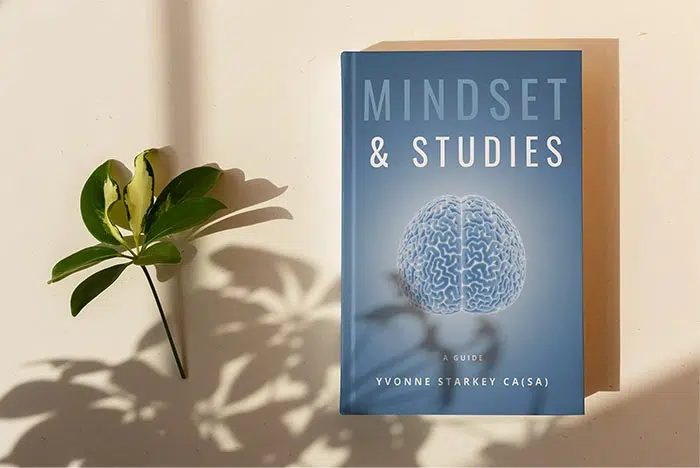



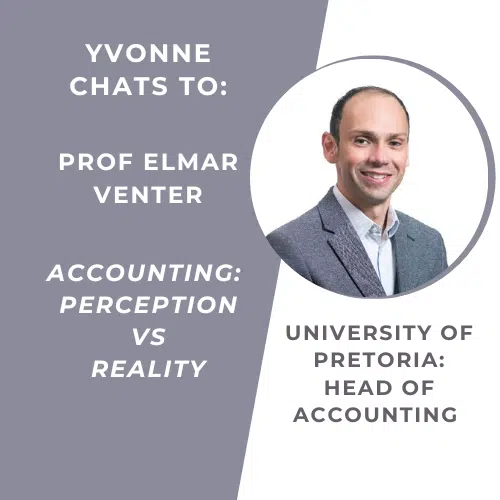

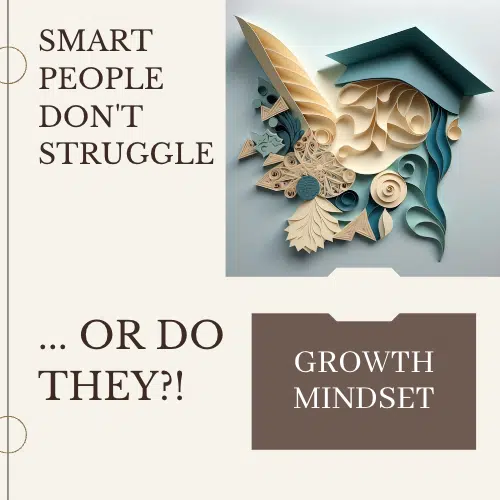

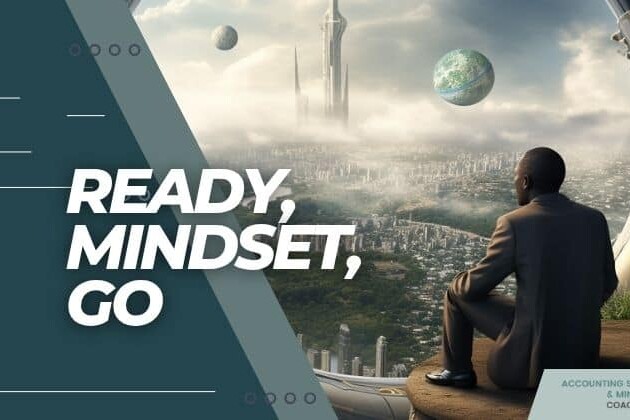



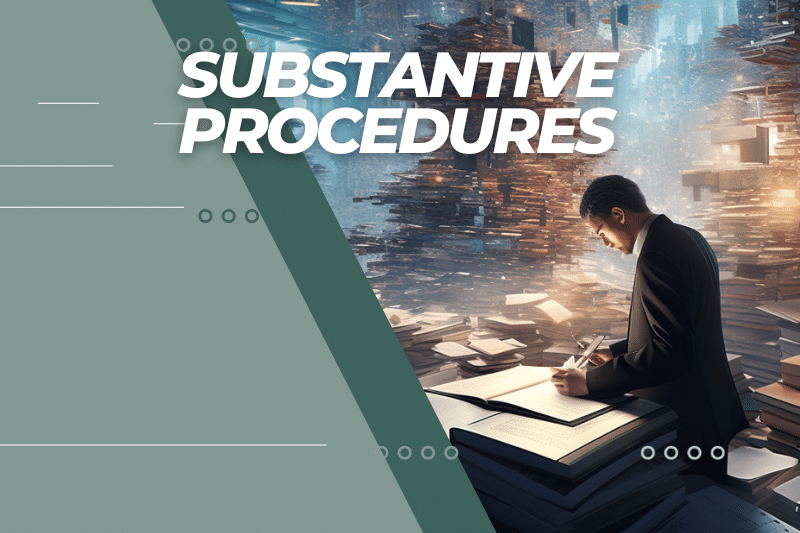

4 Comments
Dear Yvonne
Thank you for this insightful article. I applaud you for the great work that you are doing. In all truth, I always leave inspired after browsing through your website.
I am currently doing my final semester of my BCom Accounting degree. I am looking to venture into forensic accounting and would like your insight in that regard. Is there a demand for forensic accountants in the country? Am I able to pursue a fulfilling career as a forensic accountant?
Yours sincerely
Pam
Dear Yvonne
For the longest time in my life I was certain on what I wanted to do after high school,which was to qualify as a Chartered Accountant.I remember back in school when I’d write down my name,I would always write CA(SA) after it as this was all I ever saw myself doing in life.Fast forward to 2013 when I matriculated and went for several interviews and psychometric testing with the Big 4 Firms.I was eventually awarded with a Training contract with one of the firms and boy was I ecstatic as I felt like everything was finally falling into place.Untill i came to the end of my First year,I had failed.Devestating as it was,not once did I ever doubt that this was what I wanted to do and as a result re-did the courses that I had failed and passed them.I was determined to officially be able to write CA(SA) after my name,untill I received my results yesterday and I had failed Finac2 and Manac2.I have never felt so empty and with my parents refusing that I continue with this degree,for the first time, i doubted that maybe they are correct In saying that perhaps I’m just not cut out for it.I feel so hopeless,how did I come from matriculating with the highest mark in accounting and being offered training contracts to now feeling so dumb?but in the midst of it all this is still what I want to do,to qualify as a CA.Most people often have a “plan b” but I don’t,naive as it may sound,I was certain that I didn’t need one as Accountancy was my life.I really don’t know what to do.
Hi there… (warning… long comment ahead!)
Thanks for sharing your story. It sounds like it’s been a really challenging journey for you so far. It also sounds like you’ve been really determined and quite specific about your dream and future.
In light of this… it’s really easy for people to tell you things like… “Don’t give up”, “Hang in there” etc… but that doesn’t really help, does it?! It doesn’t actually tell you how to get from today to tomorrow, and what you’re supposed to do in order to keep going forward.
There are a few articles I’ve written that may add some value as you plan your next move… the main ones I’m thinking of now are the interviews I’ve written about with qualified CA’s:
Bronwyn
Joanè
Godfrey
Jade
and… myself 🙂
One thing all these stories have in common, is that nothing went according to plan! From failure, to motherhood, to lack of finances and rejection from universities, to lack of knowledge and support… none of these stories are your ‘textbook’ CA qualifications! You won’t find these stories on the websites that tell you “how to qualify as a CA”… and yet… these are just 5 of the MANY people I know who are CA’s… and got there DESPITE the stuff that happened to them. If life has taught us anything… it’s that you shouldn’t determine someone’s future and success by their current circumstances. That is EXTREMELY good news for you. Sure, you may have to make tough decisions, but there will be more decisions in the future, more times that you can assess where you are, change paths and reach your goal. It may feel really horrid now… (and based on stuff that happened to me… I KNOW how horrid it feels to have your dream snatched from you with what feels like no hope of moving forward)… but this isn’t the end of your life… it continues.
So… I don’t know your full circumstances. Some of the things I say may be inappropriate, but the concept is that you need to think further and wider in order to reach your dream. If there isn’t only ONE path to success, you may need to find a side-road… it may take longer, but depending on your goal and what you want… you may end up benefitting far more from the detour than you realise. (Again… I know what I’m talking about here!)
What can you do? (Again, I don’t know your situation… so forgive stuff that doesn’t apply… and these certainly aren’t a full list of solutions!)
– Chatting to your folks is important. I don’t know why they ‘refuse to allow you to continue’, if it’s finances, it’s kinda understandable. Tough, but understandable. This does mean that they will probably support you if you can find alternative financial support. They don’t want to see you hurting, and there’s no question that what you’re going through now is something they’d want to prevent you from feeling again, so turning you away from what’s hurting you might make sense to them. They may not be able to enable you to continue studying, but their moral and emotional support is important in your life and career. Perhaps they can read some of these stories too. They might also feel that if you don’t get it right first time, you never will. There are so many people who were told that they “weren’t cut out for this”… and today they’re CA’s.
– How you ‘feel’ about this failure is super-important. I know this sounds odd, but in CTA, I really wish that I’d failed something in undergrad. (and I was a serious over-achiever… failing would’ve KILLED me!) So, why did I think this? In CTA I failed my first thing EVER… some of the subjects in Test 1. I was paralysed with horror, guilt, shame, terror, hopelessness… it had never happened before, so I never knew what came next. It felt like I’d never be able to pass anything again. There’s a lesson that’s taught only by experiencing failure… and that’s that you CAN pass something you’ve failed in the past. Until this happens to you… it’s really hard to believe you’ll ever get past that thing that stopped you. If I’d have failed in undergrad, I’d have learnt this lesson earlier, and my CTA test failure would’ve hurt, but it wouldn’t have paralysed me for as long as it did. (I wasted a lot of time after that test failure not wanting to study because I’d never be able to pass it. That could’ve cost me CTA!) My point? This failure is tough, but work through that feeling that it will forever prevent you from passing. Get over that 🙂 You can pass, you just need to figure out what went wrong. First and second year are really different, you need to learn different stuff. It could be some small misunderstanding, an exam technique issue, some fundamental thing you need to fix before moving on. Come on! It’s not the end of the world 🙂 You’ve succeeded at this before when you failed first year… what’s the difference now?! I had a student on one of my online accounting courses this year who was writing the same exam for the THIRTEENTH time! (She passed!) I had a student years ago who failed a third year Auditing exam, felt terrible, couldn’t understand what he did wrong etc… got his paper back… turned out his handwriting was so bad, the markers couldn’t read it, and that’s why he failed! Today, he’s a qualified CA 🙂
– So, Plan B… perhaps it’s time you think about that! Sure, your great marks in school seem far away, and that Bg 4 training contract may be moving further away… but that doesn’t mean there’s no CA in the future for you! Working and studying is a possibility. (It seems like you’ve been studying full time) That can help pay for studies. I delayed starting my articles and worked elsewhere to pay for studies. Yeah, it added years to the whole thing… but I got there in the end 😉 I was eventually offered a contract by a Big 4 firm when I passed CTA (but I’d already accepted a position at another firm)… so my ‘weird’ path didn’t make me less valuable.
No one starts out with a Plan B… most of society will tell you that you should NEVER have a Plan B, because it means you won’t try hard enough if there’s a ‘way out’… I disagree… Plan B’s can help you find an alternative route to the same destination along the way… sure, it may be a longer, less scenic trip… but who knows the value that may add one day!
Explore your options, embrace the different paths… speak to people. Research. Breathe… this does not have be the end for you. and there’s certainly nothing in your story that gives me the impression that you’re not cut out for this 🙂
Most of all… don’t give up hope. This does NOT define you… but how you deal with this challenge will impact your future.
I also used to struggle with this degree (especially auditing), until I learned that knowledge doesn’t count, It’s all about technique. For instance, I couldn’t pass auditing in second year (even though I could mention all the theory word for word) until I figured out that almost all other students pass by simply studying memo’s, and suddenly my mark rocketed to 70% in third year (and dropped to 53% in honours by simply studying memo’s). My point being I believe that you work hard enough; you should go and find out what other students who do pass do differently from what your doing.